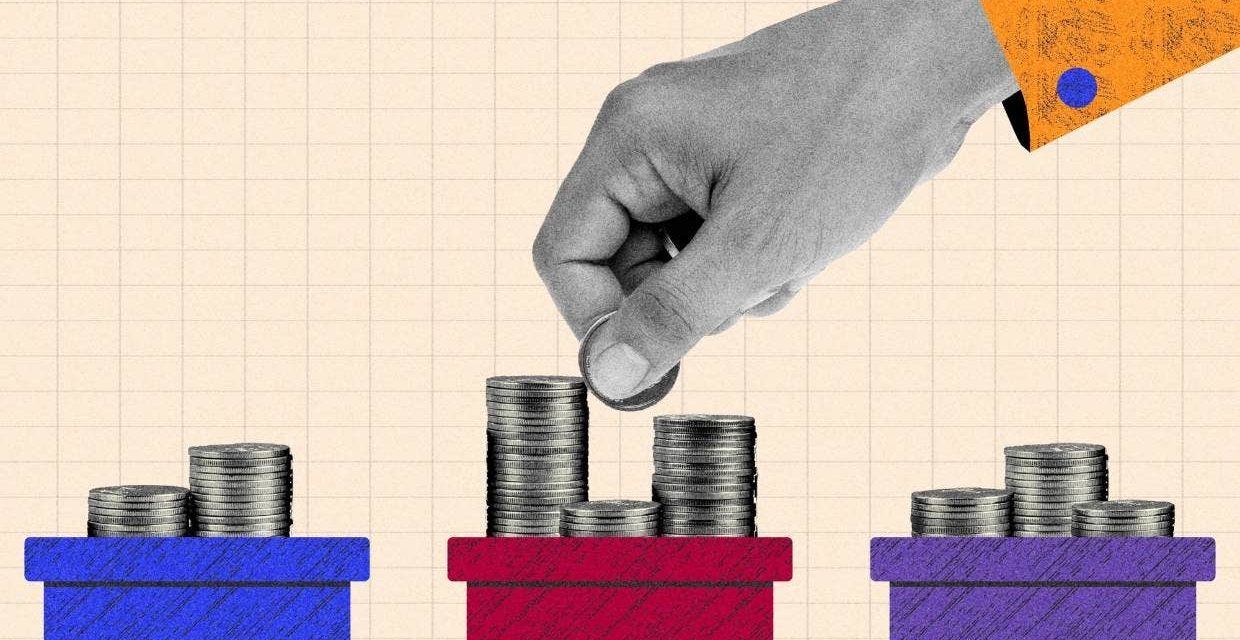There is one further way. That is by continuing to save and accumulate, wherever possible and however small.
It’s true Kiwis have traditionally been poor savers. But at a time of high inflation, it’s imperative we somehow find a way to do more of it, if we can.
There’s an old saying that savings aren’t designed to make you rich – they’re meant to provide a financial cushion, should you need it – and there’s no doubt 2023 is a time we just might need that cushion.
But it’s going to be tough as more of our incomes will be needed for the rising cost of essentials – food, power, petrol.
Consumer NZ research revealed just how hard it will be for some to save. It showed more than half of us (55%) are saving less than 5% of our income, with one in four unable to put anything aside.
More disturbingly, a rising number of people were pushed into hardship in 2022. One in four said their standard of living had declined, and nearly half of households said they were either anxious about how much they had tucked away, or they had no savings at all.
And that’s before the worst of the cost-of-living crisis arrives.
So, where is the best place to start?
If you’ve done a budget, then hopefully you’ll know if you have enough left over to save or invest.
Save small amounts often
Saving in a bank account means you can access your money whenever you want. Savings are usually used for that holiday or emergency fund and other short-term goals where you want to add amounts regularly and see the balance grow, which is a great idea.
We have a mentality that saving is investing – but saving is more short term. It usually means using a bank account which is more of a low-risk option, but that means the return you earn will be lower as well. However, that’s starting to climb now as mortgage rates rise, with some returns earning more than 5% over a one-year fixed term.
The key to saving is doing it regularly, but just as importantly is it doesn’t have to be in huge amounts. You can save small amounts often to reach both your short- and long-term goals.
Once you have tackled your budget and worked out what’s left over, make it work for you. Even just $20 a week will add up over time (that’s $1040 a year before interest!).
And remember those magical words “compounding interest” – that’s when the interest you earn on your investment or savings, earns interest itself. And so on.
Investing
Like saving, investing can work very well by contributing regular, even small amounts of money.
Depending on where you invest, it can have higher risks than saving, but there’s a better chance for greater returns on your money. You could invest in financial products once you have determined your risk profile and understand your financial position, including your goals.
This does take some consideration because the pathway will change depending on your income and commitments at different stages of your life.
Investigate some of the online investing sites, and it’s a good idea to not put all your money into one company or one industry. Diversification is the key, because often as one industry is on the decline, say hit by high fuel costs, another is on the rise.
That way you hedge your bets and make your money a little safer. If you need assistance, then reach out to a financial adviser – they offer a range of services.
KiwiSaver
It’s important that in a tough year you do your best to keep up your KiwiSaver contributions. You are allowed to take a holiday on these, but if you do you miss out on any gains you would otherwise receive.
It’s a good idea to check regularly to see how your provider is performing, and this year would be a good time to do that.
There are a few things to be aware of, such as the fees you’re paying and the contributions you’re paying into the fund, as well as those of your employer.
It’s important you don’t panic if your fund isn’t making quite as much as it was last year or the year before. This will happen from time to time, and especially at times like this of high inflation and uncertainty in the markets around the world.
It could be a good idea this year to check your risk profile hasn’t changed and you’re in the most appropriate fund for you. You need to know how your money is invested. Whether it be in cash, fixed interest funds, property, or shares, or a mix of them all, you need to have the right balance in your fund.
Be patient
It’s impossible to predict how inflation and the other factors will affect your savings and investments, but as long as you are patient, then any losses or low returns could soon be replaced by gains.
Accumulating wealth can make a huge impact on your life, and that’s why you should do your best to keep up with regular payments, so it’s important to make a plan and get started – sooner rather than later.
I have my investments set up, so I regularly make contributions to them and have made it hard to pause or stop them. I find this discipline works best for my personality.
As my adviser would say, start small then slowly increase them when you can, and the key is to regularly make the payments.








